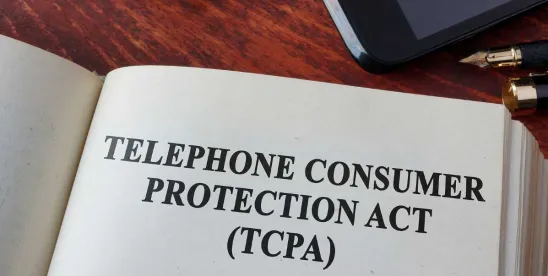Fourth Circuit Potentially Weighing In on E-SIGN Act
As we previously covered, a defendant making “winback” calls found itself mired in a TCPA class action in the US District Court for the District of Maryland in a case called Bradley v. Dentalplans.com.1The plaintiff in the case signed up for a dental discount plan over the phone in November 2018 and, during the signup process, “orally agreed to receive automated calls . . . to keep her updated with any plan information.”2 The plaintiff later apparently indicated that she did not want her plan to auto-renew and began allegedly receiving calls with prerecorded messages.3 After her plan expired, she claimed to have received prerecorded winback calls trying to keep her as a plan member and filed a TCPA class action on that basis.4
The case proceeded to certification and summary judgment, with the plaintiff arguing that the calls constituted telemarketing, requiring prior express written consent under the statute.5 The court agreed and, in light of that conclusion, turned its attention to whether the plaintiff’s voice recording was a valid written signature for purposes of establishing TCPA-compliant written consent.6 The court denied summary judgment for the defendant, concluding that the voice recording did not constitute valid consent on the facts at issue because the disclosure requirements under the Electronic Signatures in Global and National Commerce Act (E-SIGN Act), located at 15 USC § 7001(c), had not been satisfied.7
Faced with an interlocutory order that was not immediately appealable, the defendant moved to have the order certified for appeal under 28 USC § 1292(b). The court agreed, finding that whether the E-SIGN Act’s disclosure requirements apply to the TCPA is a controlling question that should be decided by the Fourth Circuit. In doing so, the court noted that there is no controlling authority in its circuit, while district courts have given mixed answers on the issue. And with that, the court stayed the case pending resolution of the interlocutory appeal.
The decision highlights the nuances of obtaining TCPA-compliant consent, which will become increasingly complex come January 27, 2025, when the FCC’s new 1:1 consent rule takes effect. We will continue to monitor Bradley for further developments.
Stay Granted Pending Supreme Court’s McLaughlin Chiropractic Decision
As we also previously reported, the Supreme Court is poised to provide further guidance on the limits of agency rulings in McLaughlin Chiropractic Associates, Inc. v. McKesson Corporation et al., No. 23-1226.8 The case, which centers on the FCC’s 2019 Amerifactors Declaratory Ruling, raises the issue of whether the Hobbs Act required a district court to accept an FCC interpretation concluding that faxes received through online platforms do not fall within the ambit of the TCPA.
With McLaughlin Chiropractic Associates now teed up, the US District Court for the Northern District of Georgia stayed a case called Loudermilk v. Maelys Cosmetics USA Inc.9 The paperless order is noteworthy given that the case is premised on alleged violations of the TCPA’s National Do-Not-Call registry and internal do-not-call list regulations. In other words, although alleged calls rather than faxes form the basis of the complaint, the court decided to put the case on hold because of the potential far-reaching consequences of the Supreme Court’s upcoming decision. In light of McLaughlin Chiropractic Associates and Loudermilk, defendants in active TCPA litigation should consider trying to have their cases paused.
[1] Joshua Briones, Esteban Morales, and Nadia A. Zivkov, Litigation Update — Fourth Circuit Adds to TCPA Case Law at Appellate and District Court Levels, Telephone and Texting Compliance News, MINTZ (Jun. 28, 2024), available at: https://natlawreview.com/article/telephone-and-texting-compliance-news-litigation-update-fourth-circuit-adds-tcpa
[2] Bradley v. Dentalplans.com, No. 20-cv-1094, 2024 US Dist. LEXIS 228409, *2-3 (D. Md. Dec. 18, 2024) (internal quotations and brackets omitted).
[3] Id. at *3.
[4] Id.
[5] Id. at *5.
[6] Id.
[7] Id. at *5-6.
[8] Joshua Briones, Esteban Morales, and Nadia A. Zivkov, Litigation Update — Will the Supreme Court Revive TCPA Fax Cases and Deliver Another Blow to the FCC?, Telephone and Texting Compliance News, MINTZ (Oct. 30, 2024), available at: https://natlawreview.com/article/telephone-and-texting-compliance-news-litigation-update-will-supreme-court-revive
[9] No. 24-cv-01866.





 />i
/>i

